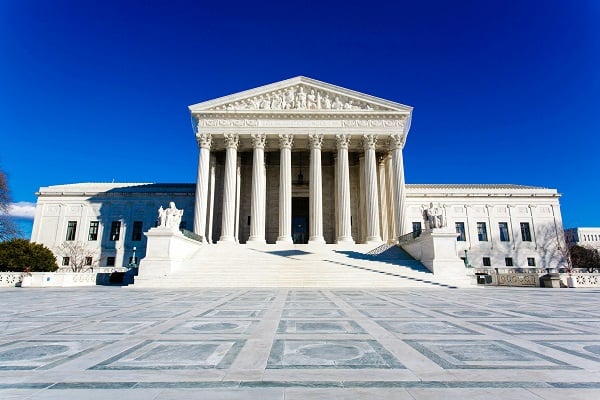
U.S. Supreme Court Stays EPA Ozone Interstate Transport Rule
On Thursday, in Ohio v. Environmental Protection Agency, the U.S. Supreme Court stayed an Environmental Protection Agency (EPA) rule that would have required the implementation of additional, significant emissions controls in power plants, pipelines, cement factories, glass factories, iron and steel mills, paper mills, and other industrial facilities across 23 states. The stay provides relief to those industries as they challenge various aspects of the rule in the U.S. Court of Appeals for the D.C. Circuit — challenges on which the Supreme Court found the states and industries were likely to succeed.
Congress Passes ADVANCE Act to Facilitate U.S. Development of Advanced Nuclear Reactors
On June 18, 2024, the U.S. Senate passed the Accelerating Deployment of Versatile, Advanced Nuclear for Clean Energy (ADVANCE) Act to accelerate the deployment of nuclear energy capacity, including by accelerating the licensing and creating new incentives for advanced nuclear reactor technologies, among them small modular reactors. The Senate introduced the ADVANCE Act in March 2023, and the House of Representatives passed the Fire Grants and Safety Act, which contains the ADVANCE Act, on May 8, 2024. Now that both houses have passed the Act, it will go to President Joe Biden for signature. Full text of the ADVANCE Act as passed by the Senate can be found here on page 4.
Vermont and New York Climate Acts are First in a Wave of Likely Climate Change Cost Recovery Laws
On May 30, 2024, Vermont’s Republican governor, Phil Scott, allowed Vermont’s S 259 — also referred to as the “Climate Superfund Act” — to become law without his signature. The stated goal of this law is to mitigate the impacts of climate change.

National Highway Traffic Safety Administration Finalizes Next Set of Corporate Average Fuel Economy Standards
On Friday, June 7, 2024, the U.S. Department of Transportation National Highway Traffic Safety Administration (NHTSA) finalized its corporate average fuel economy (CAFE) standards for model years (MY) 2027 through 2032 passenger cars and light-duty trucks. The standards will push automakers to increase fleetwide fuel economy by approximately 2% each year, which is less aggressive than the 4% increase for light-duty trucks considered in NHTSA’s July 2023 proposed rule. Taken together, NHTSA predicts that the fleetwide average fuel economy across the industry will reach 50.4 miles per gallon by 2031, while increased upfront vehicle costs would offset lifetime fuel savings over time.
White House Releases Plan to Advance Nuclear Reactor Technologies
On May 29, 2024, the Biden administration announced the creation of a Nuclear Power Project Management and Delivery working group (Working Group), which is intended to accelerate the deployment of cost-effective nuclear reactor technology. The Working Group will include members of the White House and the U.S. Department of Energy (DOE) as well as other stakeholders, including project developers, engineering, procurement, and construction firms, utilities, investors, labor organizations, academics, and nongovernmental organizations.

